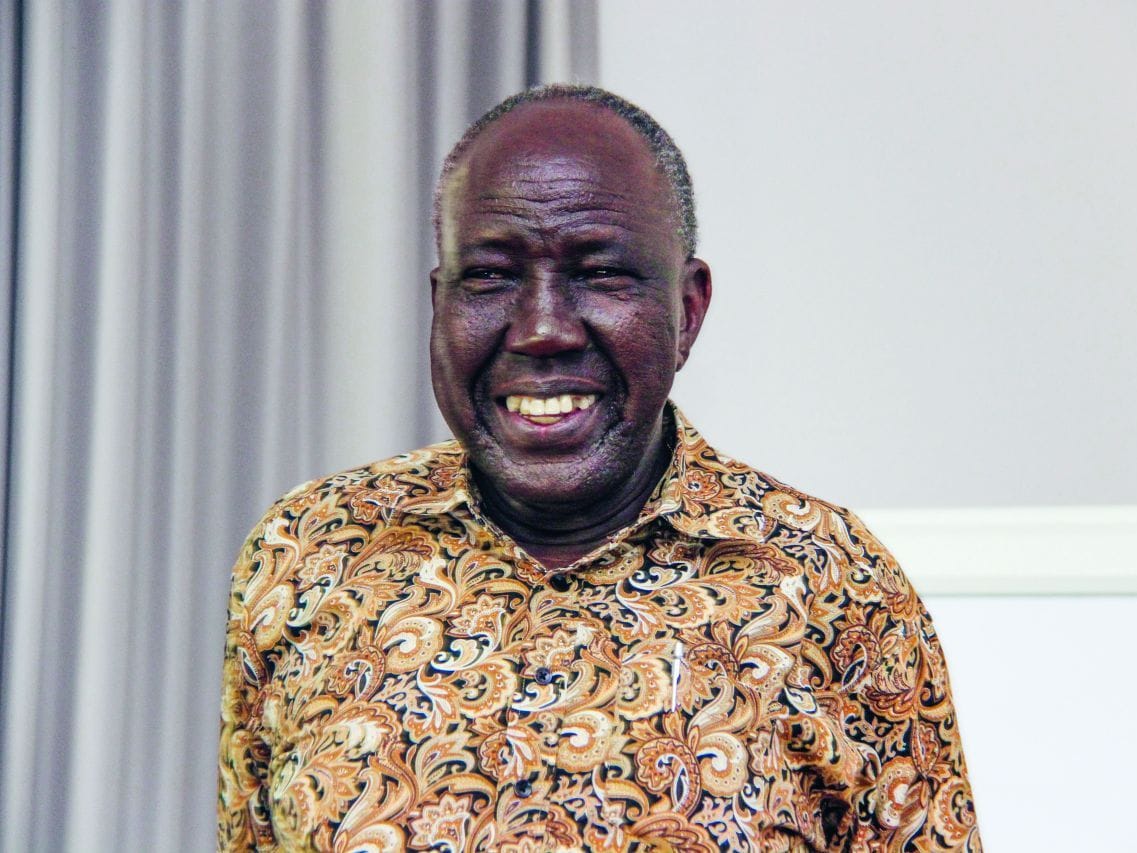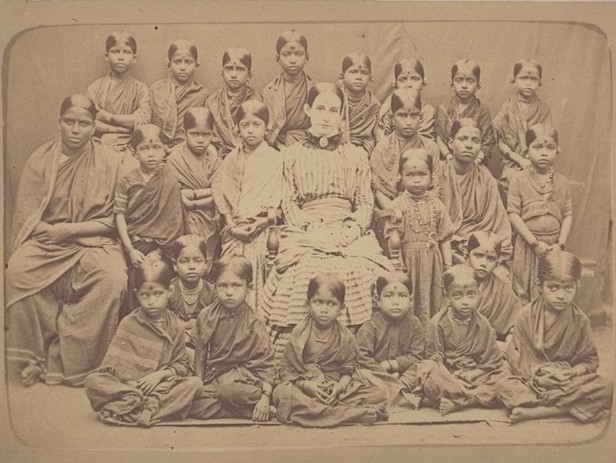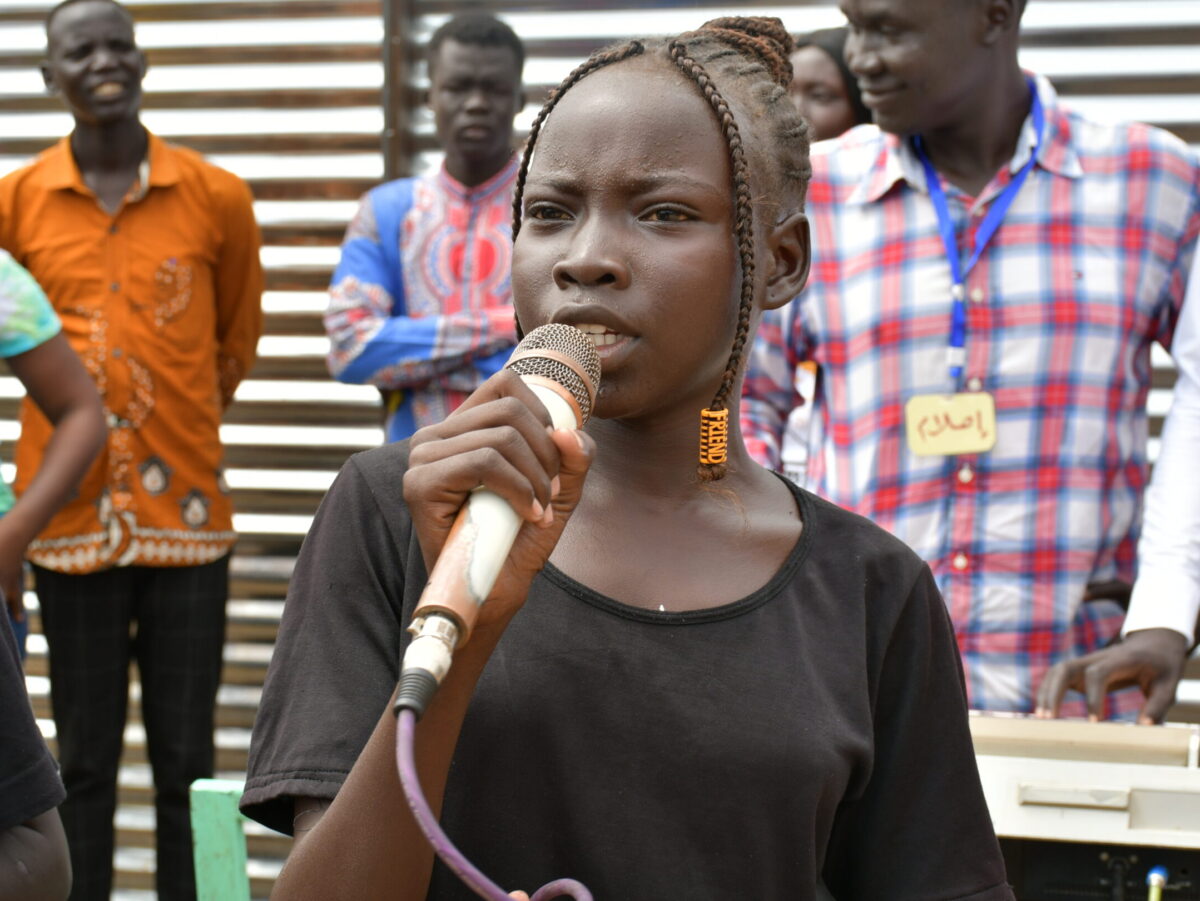Mission 21: What is particularly important in South Sudan at this point in time?
Reverend Peter Gai: Emergency aid, because people have lost their livelihood, their fields, in the war. All over the country, people are suffering from hunger. They need health support and food. And we have to help the people so that confidence can grow again among the population.
Why is building trust so important? The war has fomented enmity between people who were once neighbors, co-workers, friends. They distrust each other and are afraid, for example, to enter neighborhoods dominated by the other ethnic group. That's why encounters are so important. When people of different ethnicities come together and talk to each other, they understand that the suffering on both sides is great and develop compassion.
What do you think of the peace agreement signed in September 2018? Those who signed the peace agreement are the same men who started the war. So now they have to prove to us that they are serious and really want peace.
In mid-April 2019, you and other church leaders were at a spiritual retreat with the Pope at the Vatican, attended by the two feuding politicians in South Sudan, President Salva Kiir and his former Vice President Riek Machar - what was the goal? A meeting between the political and religious leadership in the country made sense so that the Holy Spirit would support the formation of the government. The former warring parties should be brought closer to God so that peace can be maintained. The Pope exhorted the politicians to work for peace. There has never been such a meeting before! I was very impressed by his commitment to South Sudan.
What impact did the meeting have on Machar and Kiir? It is a turning point. The hearts of Machar and Kiir were visibly touched. What still worries me is the influence of their respective people who did not attend the meeting. We churches will definitely redouble our efforts. We will continue the dialogue with Machar and Kiir. Because, as a reminder, the peace agreement was not concluded in Rome, it was worked out here in South Sudan.
Do you think peace should be implemented at the political level first? All levels are important. The first level is political peace, which must be promoted above all by the parties. For us as a church, the grassroots level is in the foreground: we must not forget the general population in peace work, but speak to the people.
And how are these people reached? About the church. Because the people in South Sudan are very religious and the church is an important ambassador for peace. If the church in South Sudan stands united for peace, it can contribute a lot to stopping the war. We regularly carry out outreaches throughout the country for this purpose, so-called "peace missions"; they are financed by Mission 21.
What do such "peace missions" actually achieve? Let me give you an example: In Malakal, the Dinka and Nuer fought badly, and there was a split. The Dinka remained in the city, the Nuer were accommodated in a camp for internally displaced persons. There has been no contact between the ethnic groups for years. The fears on both sides are great. Our task as a church in such a situation is to mediate as a neutral authority. On my "Peace Mission" I first organized a visit of the Nuer to the Dinka in Malakal, and then vice versa. Then I conducted a three-day, ethnically mixed peace workshop with different target groups. The success of this peace work is sustainable: Since then, there is regular exchange and also mutual support in Malakal.
Where does your great motivation for peace work come from? The living conditions of the displaced people are inhumane, the people suffer. For this to change, peace must come. That's where my motivation for peace work comes from. It is often very difficult work. But there are successes. I have been able to convince a lot of people about peace. That gives me hope and shows me that our work has an impact.
► More about our peace campaign
► More on peace work in South Sudan






